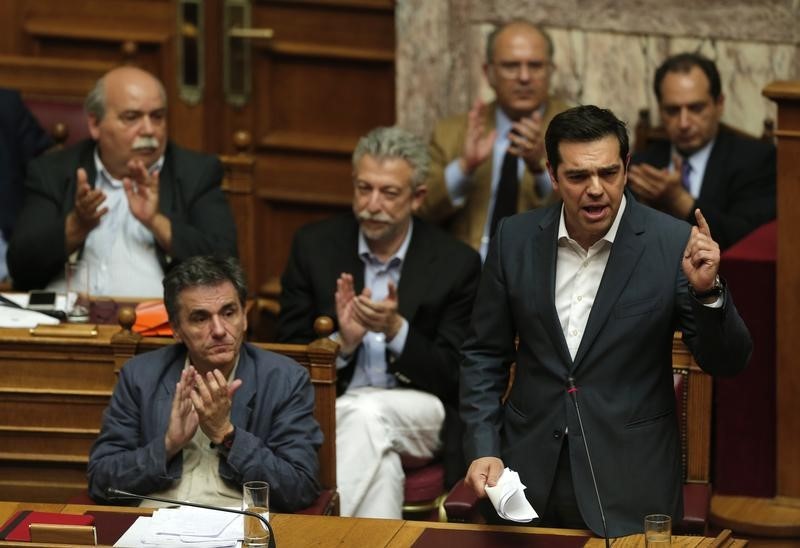By Renee Maltezou
ATHENS (Reuters) - Greek Prime Minister Alexis Tsipras said on Monday the International Monetary Fund was not playing a constructive role in Greece's bailout and should make up its mind whether it wants to stay in the programme.
He accused the Washington-based global lender of making unrealistic demands both on Greece for tough reforms and on its euro zone partners for debt relief beyond what they can accept.
"This is a stance that cannot be called constructive in this process," the leftist leader said in a television interview.
"The Fund must decide if it wants to compromise, if it will stay in the programme," Tsipras said. "If it does not want that compromise, it should say so publicly."
The IMF has taken the hardest line in demanding pension reform with benefit cuts, and a far-reaching liberalisation of Greece's labour market.
It has also said European governments need to grant Athens debt relief on a scale they have so far been unwilling to consider - including a possible 30-year debt service holiday - to make the public debt mountain sustainable.
The IMF has not disbursed any aid to Greece since August 2014 under a previous programme due to expire next March.
Athens defaulted on an IMF loan repayment in June but has since made up the arrears after receiving a third bailout from euro zone creditors.
An IMF spokesman said last week the Fund would decide whether to co-finance the new bailout after the first review of compliance with the programme, expected early next year, and in light of how much debt relief Greece receives.
Tsipras acknowledged that it was important for creditor countries such as Germany and Finland for the IMF to stay in the programme to ensure discipline.
But he said Europe had the expertise to manage such programmes on its own. The Fund was not being helpful by making reform demands that Greece's political system and society could not bear, "and by going to the (EU) partners demanding solutions and proposals on debt sustainability which they know our partners cannot accept".
In the 90-minute interview with public broadcaster ERT, Tsipras, re-elected in September, ruled out widening his coalition beyond the current 153 lawmakers of his leftist Syriza party and the rightist Independent Greeks, which give him a narrow three-seat majority.

But he said he wanted a dialogue with all opposition parties except the extreme-right Golden Dawn to identify areas of consensus on issues of national interest such as the flood of refugees into Greece, the long-term future of pensions or a political settlement to the division of Cyprus.